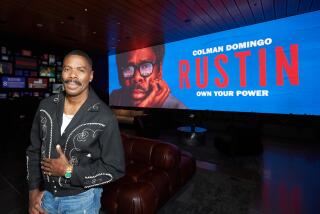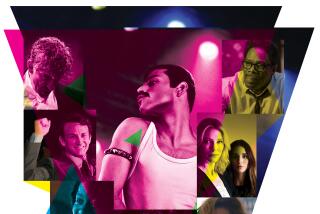Pride on the silver screen: 8 notable LGBT documentaries
The Supreme Court’s landmark ruling granting gays and lesbians the right to marry nationwide last Friday culminated a legal battle that has been fought in U.S. courts and at the ballot box for more than a decade, and in the hearts and minds of the public for far longer than that.
During that time, and especially in recent years, many filmmakers have used the documentary medium to illuminate different aspects of the LGBT community, and to chronicle its members’ struggle for recognition. Here are eight notable examples.
“The Case Against 8”
Shot over a five-year period and released just over a year ago, Ben Cotner and Ryan White’s film follows the twists and turns of the American Foundation for Equal Rights’ federal lawsuit challenging California’s Proposition 8, the 2008 ballot initiative that defined marriage as only existing between a man and a woman.
While offering a clear and compelling look at the complex legal proceedings, the film never loses track of the inherent human drama. It also benefits from a cast of fascinating characters, especially the improbable duo spearheading the case: conservative Ted Olson and liberal David Boise, who previously faced off on opposite sides of Bush vs. Gore.
“The Times of Harvey Milk”
Robert Epstein and Richard Schmiechen’s documentary about the first openly gay person elected to public office in California won an Academy Award in 1985, long before Gus Van Sant and Sean Penn gave Harvey Milk the biopic treatment in 2008’s “Milk.”
A comprehensive, moving and insightful portrait, “Times” traces Milk’s rise from neighborhood activist to member of the San Francisco Board of Supervisors, as well as his assassination and the huge outpouring of grief that followed.
“How to Survive a Plague”
Journalist-turned-filmmaker David France’s vivid 2012 documentary takes viewers to the front lines of 1980s Greenwich Village, when the AIDS Coalition to Unleash Power -- better known as ACT UP -- formed to confront the escalating AIDS epidemic. Drawing primarily on firsthand footage, the film explores how the group used a combination of civil disobedience and medical and pharmaceutical self-education to push for change.
A vital film, “How to Survive” impressed even Ed Koch, the late New York City mayor and a former ACT UP adversary, who praised the documentary as “superb” in a review for a local paper. (Oddly, Koch did not mention his mayorship in the review.)
“Before Stonewall”
In the summer of 1969, a police raid on the Greenwich Village gay bar the Stonewall Inn sparked three days of riots and, many would argue, set the stage for the modern gay rights movement. But it’s the lesser-known history of gay and lesbian experiences in America leading up to that flash point that directors Greta Schiller and Robert Rosenberg examine in their eye-opening 1984 documentary. A sequel, “After Stonewall,” followed in 1999.
“Call Me Kuchu” and “God Loves Uganda”
These two 2013 documentaries illuminate how, in recent years, Uganda has emerged as a key front in an international political and religious dispute over homosexuality -- one inextricably linked to the United States. The East African nation is a top destination for American evangelical groups, which have helped spread notions about the perceived evils of homosexuality and also influenced policy, including the Anti-Homosexuality Bill drafted in 2009.
Katherine Fairfax Wright and Malika Zouhali-Worrall’s “Kuchu” is a portrait of one of the bill’s staunchest opponents, the late activist David Kato, who called himself Uganda’s first openly gay man, while Roger Ross Williams’ “God Loves Uganda” focuses on the American missionaries who have flocked there.
“Paris Is Burning”
The waning days of 1980s New York City’s riotous drag balls -- where conventions of gender, sexuality, race, class and culture were fluid, to say the least -- are captured in Jennie Livingston’s 1990 documentary. Released to both acclaim and controversy (including criticism from conservative and progressive voices), the film remains a cultural touchstone a quarter-century later.
“The Celluloid Closet”
Epstein (of the aforementioned “Times of Harvey Milk”) and Jeffrey Friedman co-directed this film based on Vito Russo’s book about the history of how gays have been portrayed -- and not portrayed -- on the silver screen.
Narrated by Lily Tomlin, “Closet” covers the relatively free early days of film, the restrictive era of the Production Code and Legion of Decency, the postwar years in which gays and lesbians were almost inevitably portrayed as villains, and the more recent appearance of realistic depictions of LGBT characters. In doing so, it stands as a potent reminder that movies both reflect and influence our perception and behavior.
Follow @ogettell on Twitter for movie news.
More to Read
Only good movies
Get the Indie Focus newsletter, Mark Olsen's weekly guide to the world of cinema.
You may occasionally receive promotional content from the Los Angeles Times.






